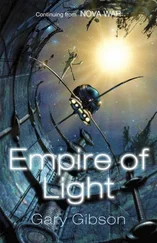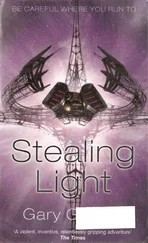Life — mine, I mean — might best be left unattended.
My brother and I were the last of the sons still living at home. It was my aunt’s job — once a month a pay envelope was propped against a step halfway up the staircase — to see to it that I was kept some distance from him. One afternoon she told me to drop what I was doing and walk with her to the room in which he was kept. I trailed her down the hall as far as the doorway, then stopped.
“No monkey business,” my aunt said.
The room was dark and windowless. This was still very early in ragweed season, and my brother was the only one of us the pollen had wanted much to do with. Handkerchiefs were balled up on his bare chest and on the floor beside the footage of yellowed foam rubber on which he was taking his slumbers. There had to be so many handkerchiefs, I was tired of being told, because a single one would have been soppy, draggled, useless, in no time.
“Go ahead,” my aunt said.
I seized each handkerchief by the corner and shook it out into a lank spookling and then passed it along to my other hand until I had a dank fraternity of at least a dozen or so of the things squirming together.
My aunt started toward the doorway.
“Go,” she said. Her eyes, I could see, were watering a trifle.
In my room, I dunked the handkerchiefs one by one into the scummed water in the wash pail and, without rinsing or wringing, distributed them across the floor to dry. At some point, I composed myself — stretched myself out atop the handkerchiefs to cool the backs of my legs. I pictured, as always, the gleaming expanse of my brother’s chest, smooth as tile. I might have fallen part of the way asleep.
Every room on our floor was a complete dwelling, with something to fall asleep upon, and a wash pail, and another pail for whatever was going to desert our bodies, and something to cover the food we never could finish.
When you are one age, my father was fond of repeating, practically anything is either a blanket or a bed, no matter what it might have started out to be. But I was no longer that age.
I one day entered a room where my aunt had got ahold of a newspaper. She was trying to find a reliable way to keep a taut double-page of it aloft, kite-like, between outstretched arms. She shoved it at me.
“Read this and tell me what you get out of it,” she said.
There was an article about the different things people ate and wore in a different part of the world. It was padded with recipes and sewing patterns, anecdotes, excitant quotes. I could see how old and rotten the thing was. I gave my aunt a chunked, inaccurate summary.
“Nothing in there about brothers?” she said. “How brothers should behave themselves around each other?”
She reclaimed the paper, tried to get it up in the air again.
“It names all the places they’re allowed at on each other,” I said. “It names everything about the places.”
“Show me where it says any such thing,” she said. “They can’t print that in a paper.”
I stabbed my finger through the page, jerked it out of her hands. I returned to the tropical stink of my room and counted the number of times my brother at the other end of the house sneezed next in succession — forty and seven.
Downstairs, it was a regular house. My parents were partners in a failing sales venture that confined them to hotels for weeks on end, but when they came back, their voices rose up through the hardwood floors, reminding us to mind our teeth or running over the details of turning points, of showdowns, with finicking clients. We were expected to make our reactions, our acknowledgments that we had heard, sufficiently audible. Sometimes I just pounded on the floor. My brother often followed this example. I could tell when he was using his elbows and not his fists, because with an elbow you do not get nearly as much thud. The sound is more pointed. A few times I heard the ball of a bare foot. Once I swear I made out what had to have been his skull. There was nothing from his direction for a long while after that, so I drummed enough for the two of us, moving about in the room and out into the hallway, but whom was I fooling?
During my parents’ absences we were permitted downstairs no more than twice a day — one at a time, my aunt first — to choose our food and to fetch our water for drinking and dousing. We emptied our pails in the powder room. The toilet had a new seat that was not screwed on properly. It would slide out from beneath you unless you knew the right way to sit. The sink had no stopper, so you had to make sure there was nothing loose on you or on your smock when you bent forward to wash. Only one burner on the stove was even hooked up. There was a wagon-wheel-like chandelier above the kitchen table, which had an extension-leaf slid into it. One afternoon I sat at the table with a dish my mother had covered with foil in the refrigerator. It held a fantastication of stringy meat overextended with cake crumbs and edged with vegetabular sliverings that didn’t quite sit right. I happened to hear my brother squishing along the floor upstairs in socks that must have still been soaking wet. That day I began to develop an appreciation for how things upstairs sounded to people underneath. From every footfall, every stride, came a creak that rippled outward until it overspread the entire ceiling of the room. The effect was one of resounding activity, of achievements far and wide.
“If it’ll get your mind off it,” my aunt said.
She had disposed herself beneath me, her eyes already shut, her hair a leaden bulk, an infrequent twinkle in her fingernails.
I filled her body with some pulse of my trouble. From the window I could make out the low-roofed town, untrafficable in the haze. One of the housetops close by was handsomely slated and slick. I slid my mind onto it for a clammy duration.
This is what days were now like in the morning if I hoped to see my brother come afternoon.
My heyday was the week or so my brother and I were finally boyfriend and girlfriend. We would arrive together for lunch in whichever room my aunt was keeping the food heated. Handkerchiefs would swag from the waistband of my brother’s pants, to be plucked, besopped, then set free. I watched them sail toward the floor, each with a fresh fortune of phlegm.
“He always claimed his wife hated him for the wrong reasons,” my aunt said. (I am afraid I paraphrase.) “Her despisal, he felt, was wide of the mark. The marriage was far from finished, but there was less to make it stick. The bed they shared was amiss. The mattress was too big for the frame, for one thing. There was quite the overhang on his side of it. He got better at shifting his weight onto other people, or tacking somebody onto himself for purposes of symmetry alone. I was much the same way — younger. But did I run? We were too much alike in our bloodbeat. We’d gone out to eat, finally, and he told me what he had told her exactly as he had put it to her: ‘You, you, you .’ Everywhere you look — why didn’t I know it then? — people are repeating to other people what they had said to third parties, and the ones caught in the middle are afraid everyone within earshot will think that they, the middle people, are the ones being spoken to with such a tongue. So they keep interrupting. They say things like, ‘You actually said that to so-and-so?’ Emphasis on the so-and-so. But I hadn’t been around long enough to know.
“My heart back then was more of a catch basin than it is now.
“When he was a child, mind you, he slept so soundly, he had to be taught everything all over again in the mornings — how to sit up to the table, what forks were for. His sisters were Brenna, Linette, and Naomi. They jumped for joy over whatever a foul little mouth could reach. He never wanted me to know their names and their interests. ‘Disaggregate,’ he’d say if he were here. He’d be throwing up his arms all over again.
Читать дальше












